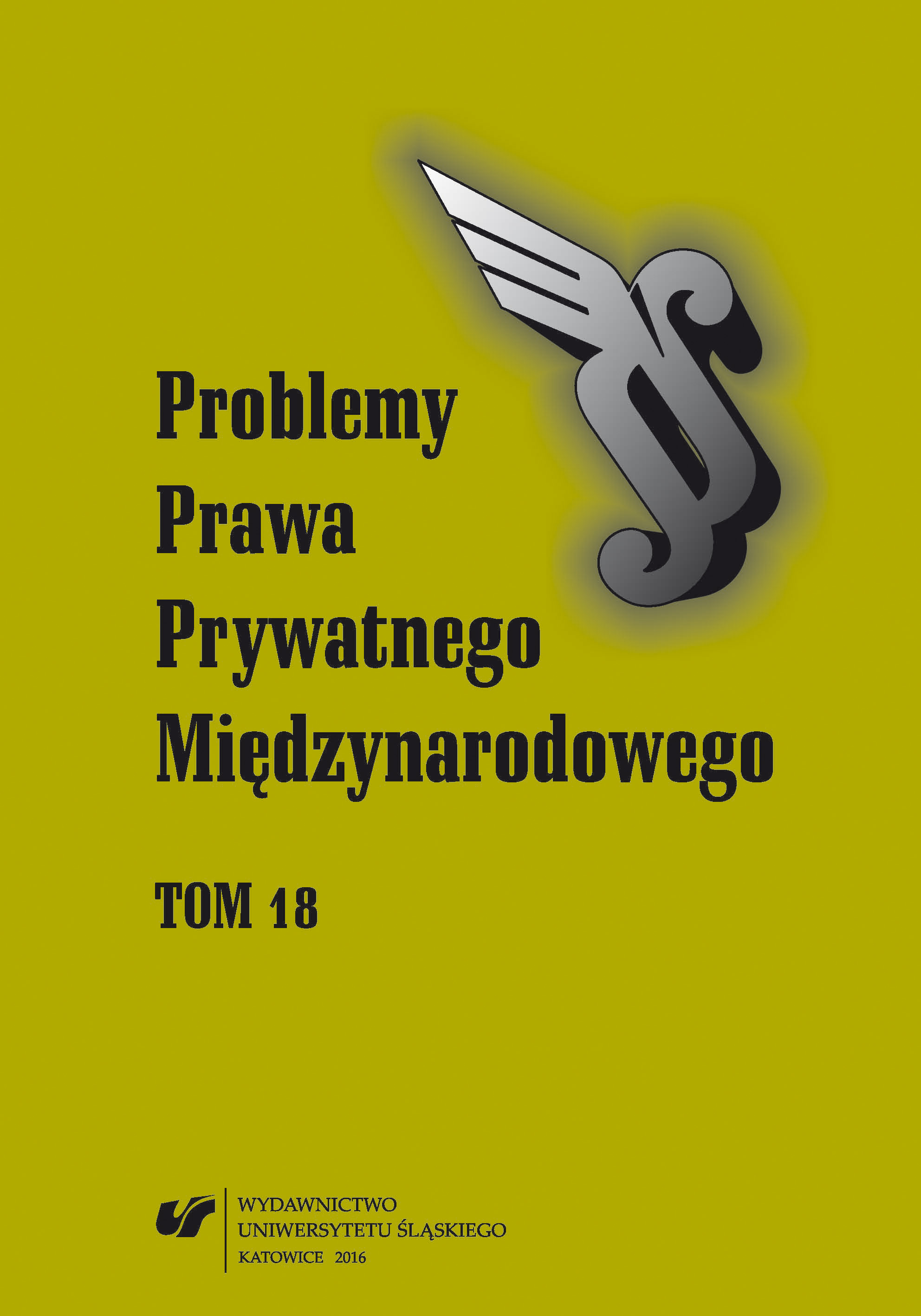Styk prawa prywatnego i publicznego z kolizyjnoprawnego punktu widzenia
The Intersection of Private and Public Law from the Perspective of Conflict of Law
Author(s): Wojciech PopiołekSubject(s): Law, Constitution, Jurisprudence, History of Law, International Law
Published by: Wydawnictwo Uniwersytetu Śląskiego
Keywords: overriding mandatory rules; public law; foreign public law
Summary/Abstract: The article examines the private international law consequences of the increasing role of the public law regulation, which it plays in international cases. In that context, the paper looks at the concept of the overriding mandatory rules as accepted also in the Polish private international law, as well as at the regulation of Article 6(1) of the Act on Private International Law of 2011. According to that rule: „The applicable law, determined in accordance with the provisions of this act, encompasses the rules of public law, if they should be applied under the applicable law to a given legal relationship”. This means that the legal system determined as applicable by the Polish conflict of laws rule, whether domestic or foreign, should be applied as a whole, including its public law rules. It is the law applicable itself that determines whether a given rule of public law should be applied. The public nature of the rule in question does not preclude its application. The judge at the forum does not have a competence to manipulate the applicable law by a priori categorizing the rules of law to the realm of public law and for that reason refuse their application. This, however, does not mean that all the public law rules of the applicable law will be applied. Their application depends foremost on their own „intent to apply”, which means that their rationae materiae and rationae personae scope of application covers the given factual situation, because of a certain connection with the territory of the given state. Moreover, the competences of the authority are relevant. The court at the forum cannot assume competences of the public authority of the state, the law of which is applicable. As a consequence, the court is, inter alia, bound by the sanction provided in the applicable law, and must apply it, provided that it remains in its competences. It cannot, however, exercise public powers over the parties to the disputed legal relationship. In case there is a conflict between foreign public law and the forum’s domestic public law, in principle the latter has priority.
Journal: Problemy Prawa Prywatnego Międzynarodowego
- Issue Year: 2016
- Issue No: 18
- Page Range: 31-58
- Page Count: 28
- Language: Polish

